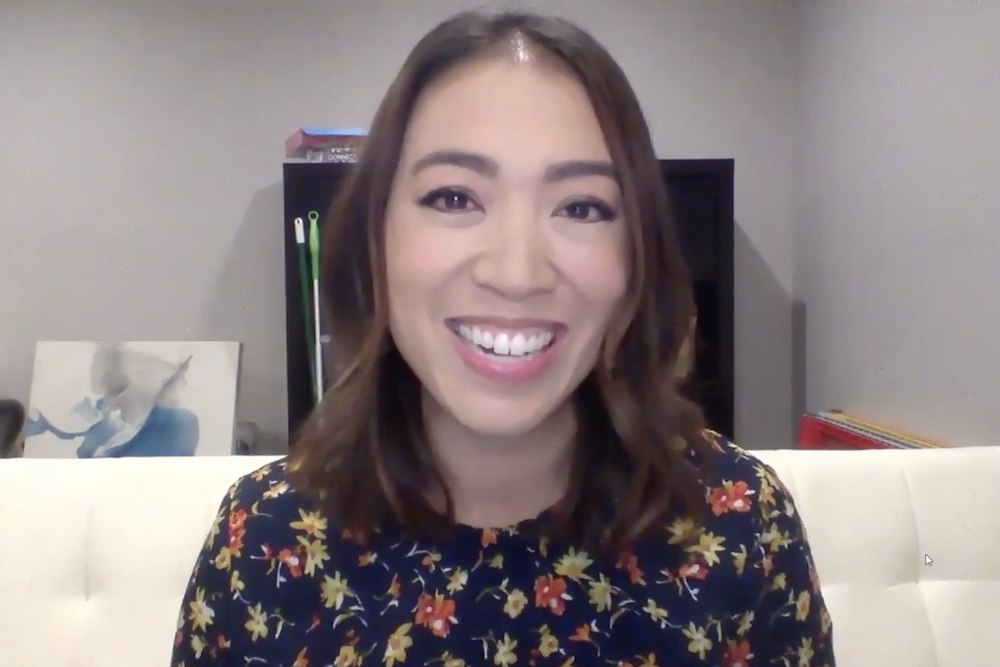
Elise Hu moderating the panel discussion, “How Does Music Change Your Brain?”
Elise Hu is a host-at-large, based at NPR West in Culver City. Previously, she was the founding bureau chief and International Correspondent for NPR’s Seoul office, and was one of the founding reporters at the Texas Tribune, a non-profit digital news startup devoted to politics and public policy. Before moderating a Zócalo event in March 2020 titled “How Does Music Change Your Brain?,” she spoke in the virtual green room about ramen, Seoul’s transportation and beauty standards, and making life decisions with your head and career decisions with your heart.
What was the last book you read?
I’m in the middle of one right now. It’s Glennon Doyle’s new memoir—her third memoir—Untamed.
What restaurant do you frequent most?
The Santouka Ramen counter at Mitsuwa Marketplace, on Centinela.
Who was the last actor who made you swoon?
Idris Elba.
What place on Earth that you haven’t traveled to would you most like to visit?
I’ve been really wanting to go to Peru. My next-door neighbor is Peruvian for one thing. And I just haven’t spent any time in South America ever. I was a foreign correspondent, and covered the entire Asian region, but that’s been to the exclusion of South America, of Latin America.
Which story from your career do you find yourself thinking about the most?
Some unfinished business with the story of modern South Korean and women. The imperative to be a woman who fits into rigid beauty standards. Now I am thinking about writing a book about it.
What’s the dessert you can’t resist?
Thin Mints Girl Scout cookies.
What’s the best thing about living in Seoul?
These days, it’s the pristine and always reliable public transportation.
What do you miss about your time in Austin?
Queso and flour tortillas.
You were once named “Best TV reporter who can write.” Is that a bad thing, a back-handed compliment?
No, it’s the opposite. TV reporters are assumed to not be good writers. But writing for broadcast is hard—it’s quite a skill. You have to leave so much out. Every word you choose has to pack a punch.
What professor or teacher made the most lasting impact on you?
I can name a lot of them who have had a real impact. The professor from college with whom I share the longest-lasting relationship, and who remains a friend, is a man named Stacey Woelfel. He’s now the director of the documentary film journalism institute at the University of Missouri-Columbia.
What’s the best advice you ever received?
It was from Shankar Vedantam, NPR social science reporter and host of the podcast Hidden Brain. It was this: When you are making decisions about your life, you should use your head. When you’re making decisions about your career, you should use your heart.
We should be a lot more pragmatic about decisions with children and family. But when you’re thinking about your next career move, don’t get bogged down—follow the passion.



